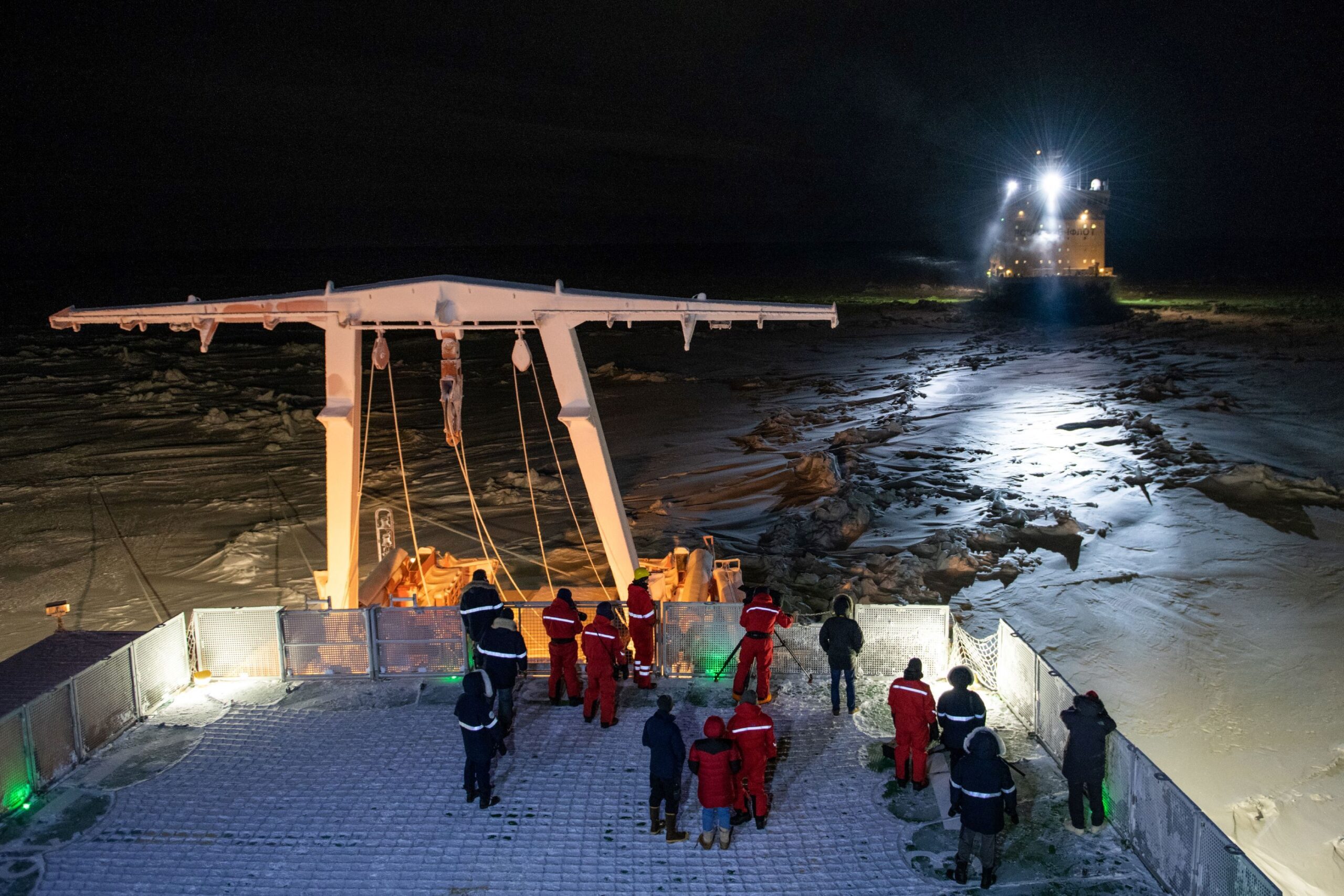Isolated From The Coronavirus — And The Rest Of The World — On An Arctic Expedition

Scientists working as part of the Mosaic expedition, a big international research project to study the Arctic, have been “very well-insulated from the coronavirus,” said Chris Marsay, a research associate at the University of Georgia Skidaway Institute of Oceanography. Still, they worry about family and friends and wonder about the “completely different way of life” back at home.
Esther Horvath / Alfred-Wegener-Institute
There’s a place where people still gather to eat and to hang out after work. A place where everyone knows they don’t have the coronavirus.
It’s a research ship, full of scientists, trapped in the ice in the Arctic.
The Mosaic expedition is a big international research project to study the Arctic. For a year, scientists from countries all over the world are taking turns living in a German icebreaker while the ship drifts in the ice.
“It’s been kind of surreal to hear of the restrictions on daily life from family and friends back home,” said Chris Marsay, a research associate at the University of Georgia Skidaway Institute of Oceanography.
He’s studying trace elements that get deposited on the surface of the ocean from the atmosphere – some good, like iron and zinc, which feed plankton – and some bad, like lead. He also occasionally takes shifts on polar bear guard duty, though none have been spotted since he started his stint on the boat, he said.
When Marsay began traveling to the icebreaker, the virus was mostly limited to China.
“We’re currently very well-insulated from the coronavirus,” he said. “We’re able to get on with our daily work. We sit together for our meals, and we sit together to chat in the evenings.”
But while no one has contracted the virus, the research expedition is affected by the pandemic.
Some scientific survey flights were canceled. And the people currently aboard the ship were supposed to have rotated off, to be replaced by a new group earlier this month. But because of flight cancellations, now the plan is to break the ship out of the ice and meet another ship, so people can rotate on and off. That will interrupt what was supposed to be continuous research.
Marsay said people on the ship are worried about friends and family at home; some people are eager to leave, while others were OK with staying insulated as long as they could.
“There have been plenty of conversations on board about how strange it will be to get back and get confronted with a completely different way of life than that which we left in January,” he said. “I never expected to come to the middle of the Arctic Ocean and have my daily life less restricted than it would back home. But in many ways, that’s certainly the case at the moment.”








